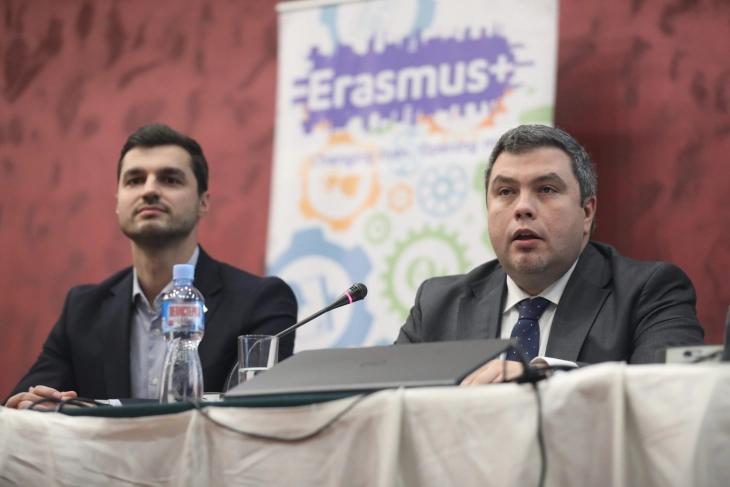Marichikj: Erasmus+ has significant role in efforts to achieve economic growth plans

Skopje, 13 October 2022 (MIA) – The opportunity to exchange ideas, good practices and experience in European and international frameworks is an inspiration for a large number of pupils, students and educational staff, Deputy PM for European Affairs Bojan Marichikj told Thursday's conference on school capacity building, hosted by the National Agency for European Educational Programs and Mobility within the Erasmus+ program.
“In supporting cooperation in the fields of education, training, youth and sports, Erasmus+ has a significant role in the efforts to achieve economic growth plans, employment, equality and social inclusion,” said Marichikj, noting that for this purpose, in 2022 alone North Macedonia has a budget of EUR 6 million at its disposal, which, he added, is implemented through a wide range of actions intended for education and training, as well as support for young people.
According to the Deputy PM, education is the biggest investment in the future of children and young people, and quality education builds free citizens, strengthens the economy and strengthens the democratic fabric that is the basis for development.
Deputy Head of the EU Delegation to North Macedonia, Julian Vassallo, pointed out that the 2021-2027 Erasmus+ program is the most inclusive so far.
“It includes not only higher education, but all levels and types of education and training, which is reflected in the well-known Erasmus+ level, supported with EUR 24.5 billion, which is double the budget of the previous program,” he added.
According to Vassallo, the program focuses on the priorities that the European Union has set for the member states and partner countries, which, he noted, include social inclusion, the green and digital transition and greater participation of young people in the democratic life.
Head of the National Agency for European Educational Programs and Mobility, Marko Gjorgievski, encouraged participants to write and apply for projects, because failure to apply or receive projects is a negative experience.







